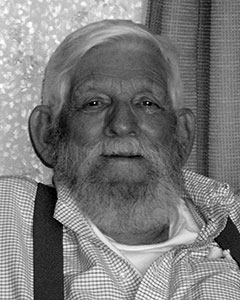
Excerpt of a memoir by Virginia writer Joyce Abell, from her book Prickly Roses, published by Passager Books in 2017. Meet Abell in a video interview.
4 minutes
TRANSCRIPT
We’re living in a moment of anxiety and constraints on our daily lives. For many people, one of those points of anxiety and constraint is mass transportation. Between social distancing and sanitation and airflow, we’re wondering whether it’s safe to ride buses or subways or trains or airplanes right now.
With that in mind, here’s a description of a train trip in an earlier time of constraints. It was written by Passager author Joyce Abell. Joyce was born in 1925 in New York City. She crossed the Atlantic at the age of five on her own when her preoccupied parents decided to ship her off to live with her grandfather, the U.S. ambassador to Albania. Sometime later, the legendary Paul Robeson sang a hymn at the funeral of her black stepmother. After a career as a high school teacher, Joyce and her husband moved to rural Virginia, where they became organic farmers.
When Joyce Abell was 92, Passager published her memoir Prickly Roses. In this excerpt, she describes her 1942 train ride from Chicago, where she lived, to Berkeley, California, where she was going to go to college.
“Because we were at the beginning of World War II, almost all of our most modern trains that summer had been commandeered for our brave troops who were being moved across America either east to the European Theatre of operations to fight the Germans or west to the Pacific Ocean to fight the Japanese. That meant that those of us who weren’t soldiers rode in what was leftover railroad stock, hauled out of old depots and repaired as best the railroad companies could. My guess is that the train I rode on must have dated from sometime in the late 19th century. It had the most uncomfortable seats imaginable—slippery, rigid and shaped to conform to no known human body.
“There was, of course, no air conditioning. One ceiling fan per railroad car wheeled its creaky, desultory way. The train had dim, dusty windows that couldn’t be opened and wrought-iron transoms that couldn’t be closed. And since it also had a coal-fired engine, cinders and ashes would float down on us through those open transoms until, within a few hours, we all became black with soot and sweat.
“By the second day, the bad news was that the dining car had been removed without explanation, almost every toilet on the train had stopped flushing, and none of the bathroom sinks produced water. The good news was that the train made an infinite number of stops where we could all rush out to use the station bathrooms, rush to buy food and drink, and then wearily climb back onto the train before it could pull out without us.”
Writer Ann Patchett said this about Abell’s book: “Her childhood adventures rival those of Harry Potter, except her stories are better because they’re true.”
. . .
To buy Joyce Abel’s Prickly Roses or learn more about Passager and its commitment to writers over 50, go to passagerbooks.com.
This audio-cast was made possible in part by a grant from the Maryland State Arts Council.






